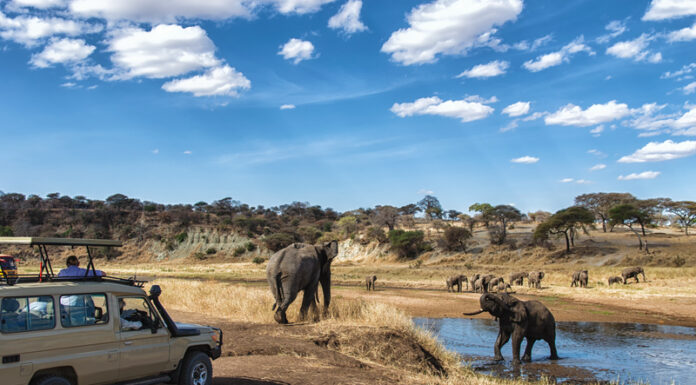Two sisters from the United Kingdom and New Zealand lost their lives on Thursday, July 3, 2025, following an attack by a female elephant during a walking safari at Zambia’s South Luangwa National Park.
Police identified the victims as 68-year-old Easton Janet Taylor from the United Kingdom and 67-year-old Alison Jean Taylor from New Zealand.
According to Eastern Province Police Commissioner Robertson Mweemba, the sisters were “attacked by a female elephant that was with a calf.”
The sisters were among a group walking with armed guides when they observed the elephant and its calf from a distance. The group attempted to change direction, but the elephant charged at them.
Alison, who reportedly had difficulty with her leg, was the first to be reached by the elephant.
The safari guides fired shots in an attempt to stop the charging animal. Despite being wounded, the elephant continued its attack, resulting in the deaths of both women at the scene. The elephant survived its injuries.
The incident occurred at South Luangwa National Park, situated in eastern Zambia, approximately 373 miles from Lusaka, the country’s capital. The park is renowned for its large population of elephants, lions, and leopards.
The safari included armed guides who typically accompany walking safaris for safety, though fatal encounters with wildlife can still occur.
A Foreign Office spokesperson confirmed that the British government was assisting the victims’ family.
Female elephants are known to be very protective of their offspring and will attack anything perceived as a threat.
Similar incidents involving elephants and older female tourists have occurred previously in Zambia. Two American women died in separate incidents during the last year, both while traveling in safari vehicles.
Another incident took place in 2024 when 79-year-old American tourist Gail Mattson was killed at Kafue National Park. A bull elephant charged her safari vehicle, carrying six guests and their guide, resulting in minor injuries for four other passengers.
Controlling wild animals is challenging, and authorities advise tourists to exercise extreme caution when observing wildlife in the country’s national parks.
Park officials and safari operators face the challenge of providing authentic wildlife experiences while ensuring the safety of tourists. South Luangwa National Park offers both walking and vehicle-based safaris, with the latter providing closer encounters with wildlife.
Elephants are responsible for about 500 deaths globally each year. The incidents in Zambia have raised concerns about safety protocols and whether current measures are adequate to protect tourists during wildlife encounters.
The bodies of the two women were recovered from the site. Local authorities are coordinating with international officials to arrange for the repatriation of the bodies. The Zambia Department of National Parks & Wildlife is investigating the circumstances surrounding the attack.
Wildlife tourism, particularly safaris, is crucial to the economies of many African nations. However, the increase in incidents involving dangerous animals threatens the reputation of these destinations and the livelihoods of those who rely on tourism. According to the United Nations World Tourism Organization (UNWTO), wildlife tourism in Africa generates billions annually, with safaris being a significant contributor. Countries like South Africa, Kenya, Tanzania, and Zambia are primary beneficiaries of this industry.
While some argue that these incidents are rare and do not reflect the typical safari experience, the issue remains: How can safari tourism offer genuine wildlife encounters while ensuring the safety of its visitors?








